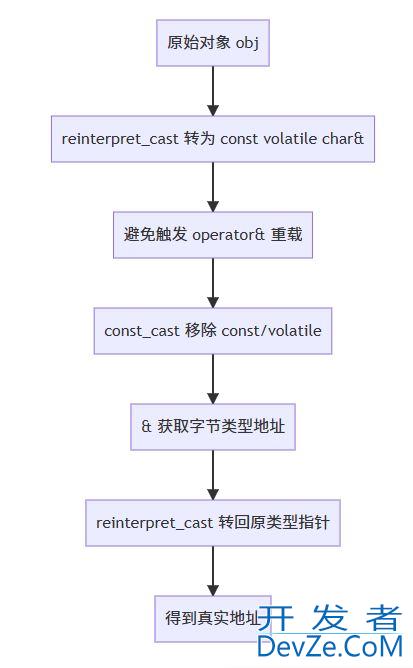使用Backoff策略提高HttpClient连接管理的效率
目录
- 序
- ConnectionBackoffStrategy
- NullBackoffStrategy
- DefaultBackoffStrategy
- BackoffStrategyExec
- 小结
序
本文主要研究一下HttpClient的ConnectionBackoffStrategy
ConnectionBackoffStrategy
org/apache/http/client/ConnectionBackoffStrategy.Java
/**
* When managing a dynamic number of connections for a given route, this
* strategy assesses whether a given request execution outcome should
* result in a backoff signal or not, based on either examining the
* {@code Throwable} that resulted or by examining the resulting
* response (e.g. for its status code).
*
* @since 4.2
*
*/
public interface ConnectionBackoffStrategy {
/**
* Determines whether seeing the given {@code Throwable} as
* a result of request execution should result in a backoff
* signal.
* @param t the {@code Throw编程客栈able} that happened
* @return {@codandroide true} if a backoff signal should be
* given
*/
boolean shouldBackoff(Throwable t);
/**
* Determines whether receiving the given {@link HttpResponse} as
* a result of request execution should result in a backoff
* signal. Implementations MUST restrict themselves to examining
* the response header and MUST NOT consume any of the response
* body, if any.
* @param resp the {@code HttpResponse} that was received
* @return {@code true} if a backoff signal should be
* given
*/
boolean shouldBackoff(HttpResponse resp);
}
ConnectionBackoffStrategy定义了shouldBackoff方法,它根据异常或者response来进行判断
NullBackoffStrategy
org/apache/http/impl/client/NullBackoffStrategy.java
public class NullBackoffStrategy implements ConnectionBackoffStrategy {
@Override
public boolean shouldBackoff(final Throwable t) {
return false;
}
@Override
public boolean shouldBackoff(final HttpResponse resp) {
return false;
}
}
NullBackoffStrategy实现了ConnectionBackoffStrategy,shouldBackoff方法返回false
DefaultBackoffStrategy
org/apache/http/impl/client/DefaultBackoffStrategy.java
public class DefaultBackoffStrategy implements ConnectionBackoffStrategy {
@Override
public boolean shouldBackoff(final Throwable t) {
return t instanceof SocketTimeoutException || t instanceof ConnectException;
}
@Override
public boolean shouldBacpythonkoff(final HttpResponse resp) {
return resp.getStatusLine().getStatusCode() == 429 ||
resp.getStatusLine().getStatusCode() == HttpStatus.SC_SERVICE_UNAVAILABLE;
}
}
DefaultBackoffStrategy在SocketTimeoutException或者ConnectException的时候返回true,或者在response code为429或者503的时候返回true
BackoffStrategyExec
org/apache/http/pythonimpl/execchain/BackoffStrategyExec.java
@Contract(threading = ThreadingBehavior.IMMUTABLE_CONDITIONAL)
public class BackoffStrategyExec implements ClientExecChain {
private final ClientExecChain requestExecutor;
private final ConnectionBackoffStrategy connectionBackoffStrategy;
private final BackoffManager backoffManager;
public BackoffStrategyExec(
final ClientExecChain requestExecutor,
final ConnectionBackoffStrategy connectionBackoffStrategy,
final BackoffManager backoffManager) {
super();
Args.notNull(requestExecutor, "HTTP client request executor");
Args.notNull(connectionBackoffStrategy, "Connection backoff strategy");
Args.notNull(backoffManager, "Backoff manager");
this.requestExecutor = requestExecutor;
this.connectionBackoffStrategy = connectionBackoffStrategy;
this.backoffManager = backoffManager;
}
@Override
public CloseableHttpResponse execute(
final HttpRoute route,
final HttpRequestWrapper request,
final HttpClientContext context,
final HttpExecutionAware execAware) throws IOException, HttpException {
Args.notNull(route, "HTTP route");
Args.notNull(request, "HTTP request");
Args.notNull(context, "HTTP context");
CloseableHttpResponse out = null;
try {
out = this.requestExecutor.execute(route, request, context, execAware);
} catch (final Exception ex) {
if (out != null) {
out.close();
}
if (this.connectionBackoffStrategy.shouldBackoff(ex)) {
this.backoffManager.backOff(route);
}
if (ex instanceof RuntimeException) {
throw (RuntimeException) ex;
}
if (ex instanceof HttpException) {
throw (HttpException) ex;
}
if (ex instanceof IOException) {
throw (IOException) ex;
}
throw new UndeclaredThrowableException(ex);
}
if (this.connectionBackoffStrategy.shouldBackoff(out)) {
this.backoffManager.backOff(route);
} else {
this.backoffManager.probe(route);
}
return out;
}
}
BackoffStrategyExec实现了ClientExecChain接口,其execute执行requestExecutor.execute,捕获到异常的时候通过connectionBackoffStrategy.shouldBackoff(ex)来决定是否需要backOff,是的话执行backoffManager.backOff(route);
若没有异常则通过connectionBackoffStrategy.shouldBackoff(out)根据response来判断是否需要backOff,是的化执行backoffManager.backOff(route)
小结
HttpClient的DefaultBackoffStrategy在SocketTimeoutException或者ConnectException的时候返回true,或者在response code为429或者503的时候返回true;BackoffStrategyEjsxec则通过connectionBackoffStrategy与backoffManager来配合执行backOff。这个backOff的目的就是动态调整每个route的connection大小(MaxPerRoute)。
以上就是使用Backoff策略提高HttpClient连接管理的效率的详细内容,更多关于HttpClient Backoff连接管理的资料请关注编程客栈(www.devze.com)其它相关文章!






 加载中,请稍侯......
加载中,请稍侯......
精彩评论